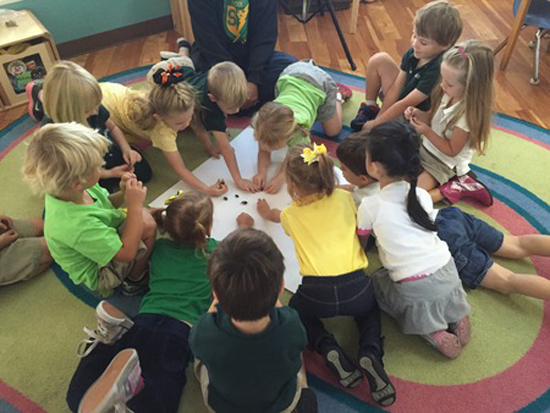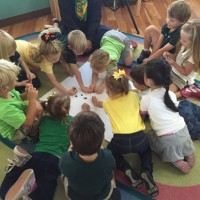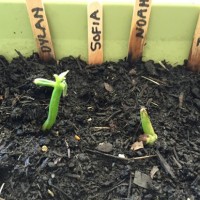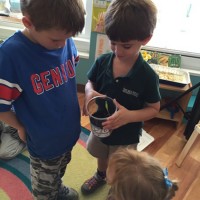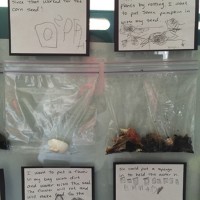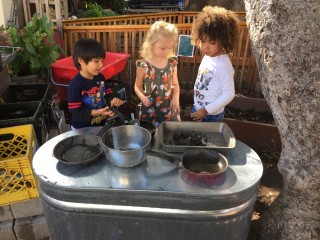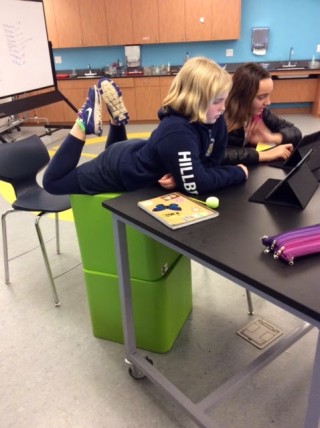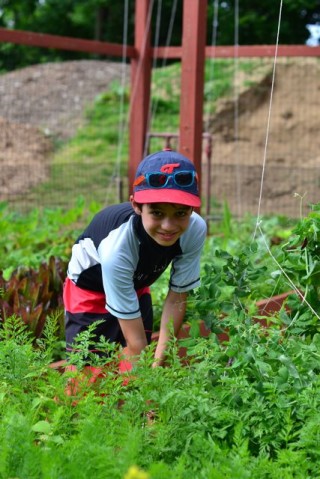In November, Junior Kindergartners in Abbie Bowen’s class at The Experiential School of Tampa Bay put bean seeds into bags; they placed some on their classroom windows and dropped others into outdoor planters. The goal: discover the difference between the inside and outside growth of their seeds. They were excited and optimistic about the project.
Then, not long after, everything went wrong. All of the seeds in the windows rotted without sprouting. Only four out of 14 outdoor seeds grew, and three of those only showed the stem—no leaves. What was happening?
“Others may have given up, but not this group of inquisitive children,” says Ms. Bowen. One student asked, “Well then, why did our bean seeds rot?” and “What happened to our seeds outside?” Just like that, they were back to the drawing board. Each child conducted an individual experiment to discover how plants would grow best in their classroom windows—everything from adding compost to the seeds to dropping in a sponge to provide plenty of water. Students also hypothesized about what had happened to their outside seeds and plants: “Rabbits eat leaves.” “Maybe squirrels dug up the other seeds.”
“While we look for success for our students, it is sometimes failure that teaches them more,” says Betty Gootson, Head of Experiential School, which is part of the Shorecrest Preparatory School family. “Through the failure of their first efforts at growing beans, they learned to solve problems, to be flexible, and to think both critically and creatively. They were willing to take risks and learned to persevere.”
